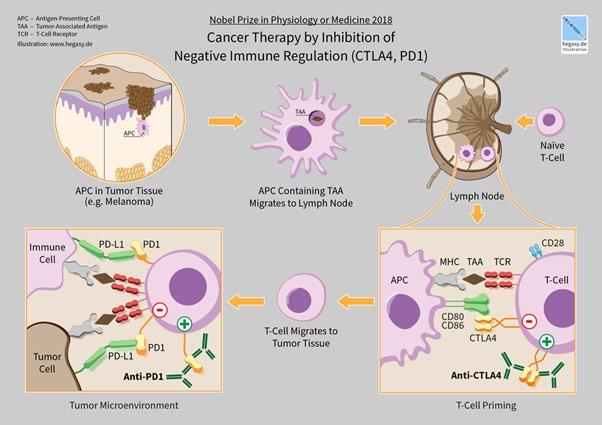
4 minute read
Dementia report examines Australian impacts
Dementia, including Alzheimer’s disease, is the second leading cause of death in Australia, surpassed (at 40.5 per cent) only by ischaemic heart diseases (49 per cent) and well ahead of cerebrovascular diseases (27.5 per cent).
Not surprisingly, then, the condition merits special study by the Australian Institute of Health and Welfare (AIHW), the Australian Government body charged with such research, and its recently released report gives great cause for concern in an ageing society.
Advertisement
The AIHW estimates for 2021 indicate that there are between 386,200 and 472,000 Australians living with dementia, a greater proportion being women. This is equivalent to 15 people with dementia per 1,000 Australians (18 per 1,000 women and 11 per 1,000 men). Some 2-in-3 people with dementia are thought to be living in the community.
The rate of dementia rises quickly with age – from less than one person with dementia per 1,000 Australians aged under 60, to 68 per 1,000 Australians aged 75–79, and then to 399 per 1,000 Australians aged 90 and over. While the rates are similar for men and women in the younger age groups, they diverge with increasing age: for the oldest age group, the rate of dementia among women is 1.4 times the rate of men.
Dementia in Australia was launched
in September 2021 by Senator Richard Colbeck, Minister for Senior Australians and Aged Care Services. It is the AIHW’s first comprehensive ‘compendium’ report on dementia since 2012 and provides the latest statistics on population health impacts, carers and care needs, health and aged care service use and direct expenditure in relation to dementia.
‘Dementia is an umbrella term for a large number of conditions that gradually impair brain function,’ said AIHW spokesperson Dr Fleur de Crespigny.
‘It poses a substantial heath, aged care and societal challenge and with Australia’s rapidly ageing population, it is predicted to become an even bigger challenge in the future.’ 9.5% of all deaths that year. It was the second leading cause of death in Australia, behind coronary heart disease and it was the leading cause of death among women (around 9,200 deaths in 2019). ‘
Although ageing increases the risk of developing dementia – one-in-12 Australians aged 65 and over are living with dementia, with 2-in-5 aged 90 and over – it is not an inevitable part of ageing. Conversely, it is estimated that at least 27,800 Australians aged under 65 are living with younger onset dementia.
The rate of dementia among Indigenous Australians is estimated to be 3–5 times as high as the rate for Australians overall. With an ageing Indigenous Australian population, it is expected that the impact of dementia among Indigenous Australians will continue to rise in the future.
There is no known cure for dementia, but there are medications that may help manage symptoms of Alzheimer’s disease. In 2019–20, there were over 623,300 prescriptions dispensed for dementiaspecific medications to about 64,600 Australians with dementia aged 30 and over.
‘In 2018–19, $3 billion of health and aged care spending was directly attributable to dementia. This included $1.7 billion on residential aged care services, $596 million on community-based aged care services and $383 million on hospital services,’ Dr de Crespigny said.
‘Most people in the advanced stages of dementia rely on care and support provided by residential aged care services. Over half of the people living in permanent residential aged care have dementia. In 2019–20, onethird of younger people (aged under 65) living in permanent residential aged care had younger onset dementia.’
Dementia Australia Chief Executive Officer Maree McCabe AM welcomed the report and ongoing work by the AIHW to improve data about dementia.
‘Better data about the experiences of Australians living with dementia and the people who care for them are essential and these can be used to improve policies and support services for those who need them most,’ Ms. McCabe said.
New National Centre for Monitoring Dementia
With a budget of $13 million over four years, a National Centre for Monitoring Dementia (NCMD) is being established at the Australian Institute of Health and Welfare (AIHW).
The government’s announcement during Dementia Action Week (20-26 Sept.) said the Centre will undertake routine monitoring of dementia, address existing data gaps and inform specific policy needs for Australians living with dementia.
Preliminary work to establish the centre has commenced. It will also encompass work on dementia that is already underway at AIHW, including projects on younger onset dementia, the mental health of people with dementia and the health and aged care interface for people with dementia.
‘The report demonstrates the Institute’s expertise in producing the information and statistics, that underpin our world-leading health and welfare systems,’ Senator Colbeck said.
‘Health and aged care policy is always the better for being informed timely and accurate data and information. This is a valuable report that provides an updated comprehensive picture of dementia and its impacts on Australia’s health and aged care sectors.’
Will your net worth today be worth more tomorrow?

In today’s highly competitive environment you need an adviser that you can trust. TNR has been providing leading accounting, audit and advisory services to individuals, professionals and businesses in Northern NSW and South East Queensland since 1899. We specialise in providing high quality accounting and advisory services to health professionals. Our qualified and experienced team will help you take control of your financial future and deliver quality of life solutions by building net wealth. Contact us to experience leading edge service and specialist advice for all your financial needs:
Business & Taxation Advice
Superannuation
Accounting
Financial Audit & Business Improvement Estate Planning
Financial Planning
31 KEEN STREET, LISMORE NSW 2480 | SUITE 901, LEVEL 9 THE ROCKET, 203 ROBINA TOWN CENTRE DRIVE ROBINA QLD 4226 T: +61 (0) 2 6626 3000 / E: enquiries@tnr.com.au / TNR.COM.AU











